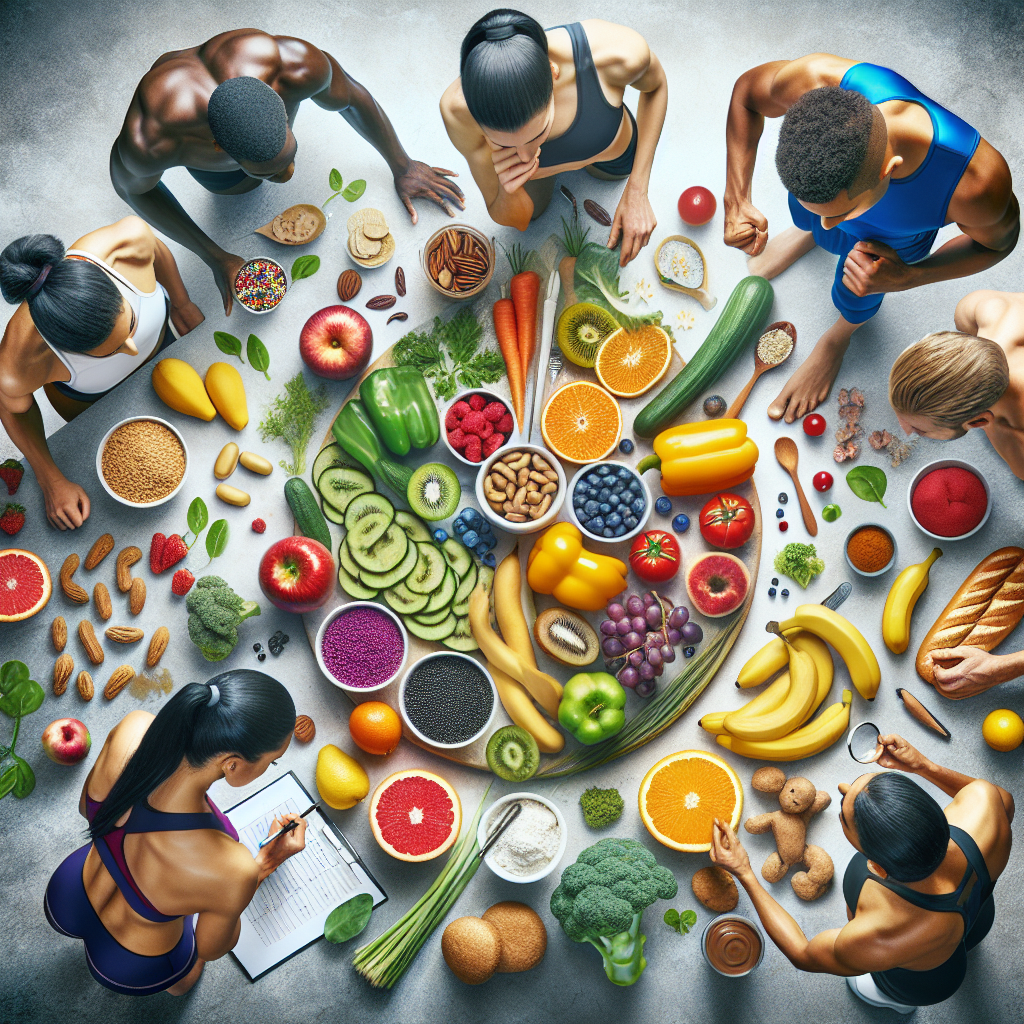
In the world of sports, physical prowess is only part of the equation. An athlete’s performance is intricately tied to what they eat, shaping not only their physical capabilities but also their mental focus and recovery capacity. Nutrition is the silent game-changer that can make the difference between a good athlete and a great one. Whether you’re a weekend warrior or training for an elite competition, understanding how to optimize your diet can unlock your true potential. Here’s how to fuel your performance and achieve your goals.
The Importance of Nutrition in Sports
Athletic performance demands a unique approach to nutrition. Athletes must consider their energy needs, macronutrient distribution, hydration, and timing of food intake. Proper nutrition fuels workouts, aids recovery, builds muscle, and enhances overall well-being.
Macronutrients: The Building Blocks of Performance
-
Carbohydrates: Often referred to as the primary fuel source for athletes, carbohydrates are critical for sustaining energy levels, especially during high-intensity training. Complex carbohydrates such as whole grains, fruits, and vegetables provide a steady energy release, helping to maintain stamina and endurance.
-
Proteins: Essential for muscle repair and growth, protein plays a vital role in recovery after strenuous exercise. Athletes should aim for quality sources, such as lean meats, fish, dairy products, legumes, and plant-based alternatives. The general guideline recommends around 1.2 to 2.0 grams of protein per kilogram of body weight, depending on the intensity of the training.
- Fats: While often misunderstood, healthy fats are crucial for energy, especially during longer, lower-intensity activities. Avocado, nuts, seeds, and olive oil provide necessary fatty acids and should comprise a portion of an athlete’s diet. They also support cellular function and hormone production, especially important for recovery and muscle growth.
Micronutrients: The Unsung Heroes
While macronutrients often steal the spotlight, micronutrients—vitamins and minerals—are essential for optimal athletic performance. Key minerals like iron, calcium, and magnesium support muscle function, bone health, and hemoglobin production. Including a variety of colorful fruits and vegetables ensures athletes receive a broad spectrum of necessary nutrients to prevent deficiencies, promote immune function, and enhance performance.
Hydration: The Foundation of Performance
Staying hydrated is as critical as consuming the right nutrients. Dehydration can lead to fatigue, decreased coordination, and impaired cognitive function—all detrimental to performance. Athletes should aim to drink water consistently throughout the day and consider electrolyte-rich beverages during prolonged workouts or hot conditions. A good rule of thumb is to drink 500–750ml of water two hours before exercise, and continue to hydrate throughout and after the activity.
Timing and Meal Planning
It’s not just what you eat that matters, but when you eat it. Strategic meal timing can significantly impact performance and recovery:
-
Pre-Workout: Fueling before exercise is crucial. A meal rich in carbohydrates (like oatmeal or rice) with some protein (like yogurt or eggs) consumed about 2-3 hours before a workout can help maximize energy levels. A quick snack rich in carbs and lower in fat (like a banana or energy bar) 30-60 minutes prior can provide a final boost.
- Post-Workout: Replenishing after exercise is essential for recovery. Consuming a meal or snack that includes both carbohydrates and protein within 30 minutes post-workout can help restore glycogen stores and promote muscle repair. Think of a smoothie with fruit and protein powder or a turkey sandwich on whole grain bread.
Special Considerations for Athletes
Every athlete’s nutritional needs can vary depending on their specific sport, intensity, and individual body requirements. Here are some personalized considerations:
-
Endurance Athletes: Increased carbohydrate intake is vital to sustain long periods of activity. Some may also benefit from electrolyte supplementation during extended exercise sessions.
-
Strength Athletes: Prioritizing protein intake can support muscle growth and repair. It may also be beneficial to consume protein-rich snacks throughout the day.
- Team Sport Athletes: These athletes can benefit from balanced meals containing carbohydrates, proteins, and fats to sustain energy throughout the game.
Conclusion
Fueling your body with the right nutrition is a vital component of peak athletic performance. By understanding and optimizing your macronutrient distribution, staying hydrated, practicing strategic meal timing, and considering individual needs based on your sport, you can set yourself up for success both in training and during competition. Remember, your diet is not just about performance; it’s also about recovery, longevity, and overall health. So, game on! With the right fuel, you can reach new heights in your athletic journey.




